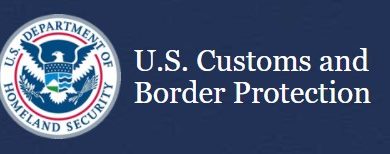Paper trail ends in jail time for 1,013 money mules
Law enforcement agencies from 26 countries, in collaboration with Europol, Eurojust, INTERPOL and several private industry partners, have once again joined forces to combat a key facilitator of money laundering: money mules and their recruiters. In June, October and November 2023, several operational phases identified 10 759 money mules and 474 recruiters, leading to the arrest of 1 013 individuals worldwide.
The ninth edition of the European Money Mule Action (EMMA 9), which was funded by EMPACT and led by the Netherlands, was the continuation of an established international law enforcement effort. As in previous years, it involved operations around the globe, such as in Colombia, Singapore and Australia.
Results of the operation include:
- 10 759 money mules identified
- 474 recruiters/herders identified
- 1 013 individuals arrested
- 10 736 fraudulent transactions reported
- 4 659 investigations initiated
- 2 822 banks and financial institutions supported the action
- EUR 100 million losses reported
- EUR 32 million in losses prevented
EMMA is the most extensive international operation of its kind, grounded in the principle that information sharing between the public and private sectors is essential in combating today’s sophisticated crimes. The European Banking Federation (EBF) was the first industry partner to EMMA, playing an active role since EMMA’s inception in 2016. In this year’s endeavour, with ongoing coordination of the EBF, approximately 2 822 banks and financial institutions collaborated with law enforcement. This joint effort also involved online money transfer services, cryptocurrency exchanges, online travel providers and ‘Know Your Customer’ (KYC) companies, as well as multinational computer technology corporations.
Crime fuelled by crime
As a coordinated action conducted across Europe and the globe, EMMA aims to fight money mule networks benefitting from different types of criminality, such as cyber-enabled fraud against financial institutions and their customers. Building on investigations conducted with the support of private industry partners, law enforcement authorities can then take action, such as arrests, seizures, house searches and interviews. Operation EMMA’s primary goal is to enhance and exchange cross-border information between the countries involved, thus making a significant contribution to the fight against money mule networks. By doing so, it aims to prevent financial losses and raise awareness about this widespread problem.
The EMMA initiative has successfully strengthened bolstering cross-border collaboration to combat and dismantle money mule networks engaged in international money laundering. These networks operate by transferring (digital or cash) funds received from third parties to other recipients, while earning a commission in the process. The majority of investigations involve cross-border cases: either money is transferred from one country to another, or organised money mules travel globally to open bank accounts, often using fake documentation to deceive KYC procedures.
Recent trends in a globalised criminal landscape
Investigators have reported a number of recent developments in the criminal landscape of international money laundering. One EU Member State has discovered that migrants from Ukraine, seeking refuge from war, are being increasingly targeted as unwitting accomplices in crime. Exploiting their vulnerability and economic distress, criminals coerce them into inadvertently laundering money by forcing them to open bank accounts.
Bank impersonation crimes are also on the rise, with criminals posing as bank officials predominantly targeting elderly people and persuading them to open new accounts. Perpetrators often visit victims in person to obtain copies of identity documents and signatures.
Another alarming trend involves the fraudulent use of artificial intelligence to create fake identities, thus making it possible to bypass KYC security features during online account creation.
In yet another emerging modus operandi, criminals target younger persons and provide them with online means of payment, such as gift cards. These are activated in a tokenisation process for purchasing goods or electronic devices. The mules then hand over the purchased goods to the criminals, who then offer them for sale on the most popular e-commerce marketplaces, receiving a percentage of the illegal proceeds either in cash or in goods.
Investigations have revealed that a series of intricate online fraud schemes are funnelling money into accounts operated by money mules. These schemes include investment scams, compromised business emails, bogus holiday rental listings, middleman scams, phishing, messenger app fraud, help desk fraud, counterfeit bank cards and the use of crypto values transferred from virtual currencies exchanges to e-wallets. This global crackdown aims to make it more difficult for criminals to operate and to disguise the flow of their illicit earnings.




